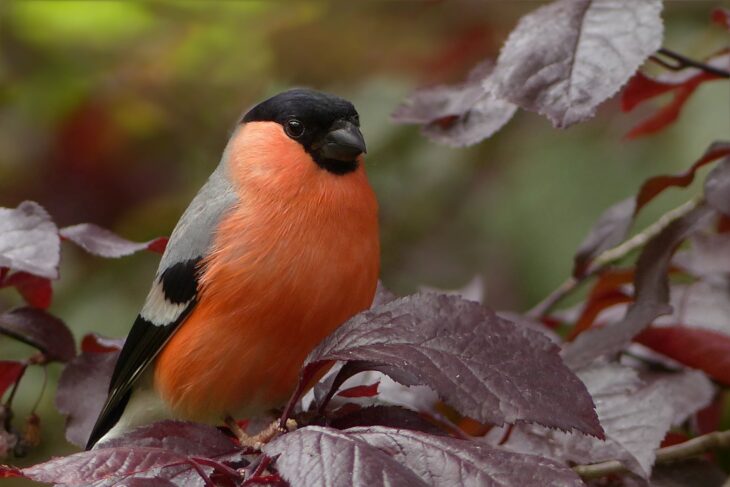The benefits of a scruffy garden
,

I glanced out of my sitting room window, where I was working at my laptop, yesterday morning, and caught a streak of lipstick pink as it flashed down towards the plants beneath the sill. Sitting up for a better view, I saw it was a male bullfinch, smart as new paint, rosy chest, coal-black cap and face, grey back and white rump – unmistakeable.
It was perched precariously on a foxglove stem, swaying slightly in the breeze, and leaning over at crazy angles to peck at the seedheads of the Welsh poppies that had so recently been lighting up this dark little corner of our tiny garden with splashes of bright yellow and orange. I watched it for ages, circling the stem to reach each pod in turn like a circus performer on a rope, before a noise disturbed it and it flew off to hide in the plum tree at the bottom of the garden. When it had gone I went out to check what it had been doing more closely. I found each ripening seedhead had been carefully peeled, and every single seed taken from inside. If I want poppies there next year I’m going to have to spread some seed from elsewhere!
I don’t mind though. It’s a privilege to have them in the garden – less than 10% of gardens do. They’re not rare, but they are declining down south as their favourite habitats are lost. They are not only shy birds, but have quite picky demands – lots of cover, preferably with flowering shrubs or trees, woodland nearby, and not too much disturbance.
Luckily we inherited a garden surrounded on three sides with trees and bushes. And we leave most of our flowers to seed and spread where they take their fancy – poppies and aquilegias, foxgloves and cranesbills, scabious and alchemillas. They know the places they will do well better than we do, and there are nearly always seeds to spare for the birds – serendipity!
One of the benefits of all the woodlands and greenspace in Cumbernauld is that it’s perfect habitat for bullfinches, and so whether residents of the town have a garden or not, they are treated to all-year-round views of these beautiful birds. And if you have even the tiniest garden, if you let your plants go a little bit wild, you’ll actually let a lot of wildness in.
